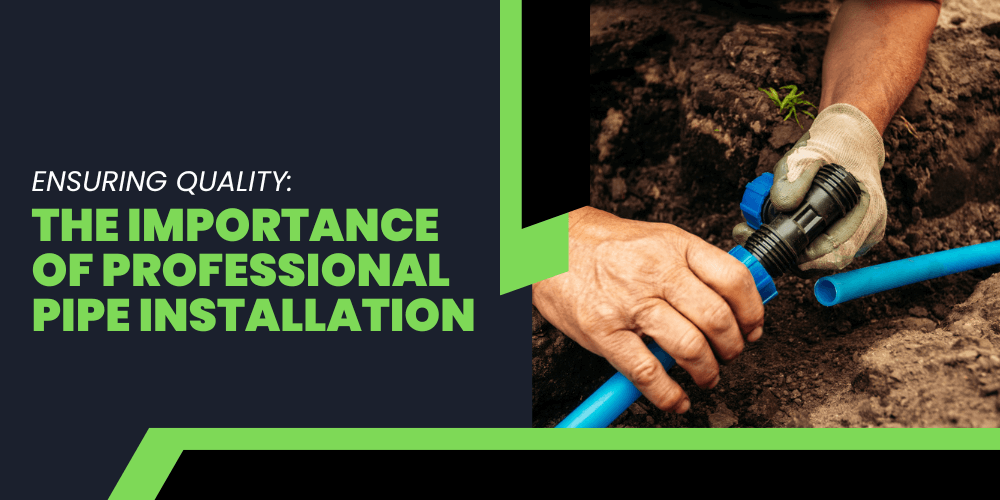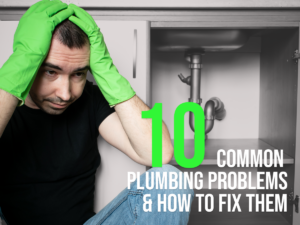Ensuring Quality: The Importance of Professional Pipe Installation
Plumbing may not be the most glamorous topic, but it’s the backbone of comfortable living. So, what’s the secret to worry-free showers and smooth-flowing taps? It all comes down to one word: precision.
Moreover, piping is critical in residential and commercial buildings, facilitating essential water supply and waste disposal. The quality and precision of pipe installation are paramount for ensuring these systems’ long-term functionality and safety.
Meanwhile, adequately installed pipes guarantee efficient operation, prevent potential hazards, and contribute significantly to the overall well-being of building occupants.
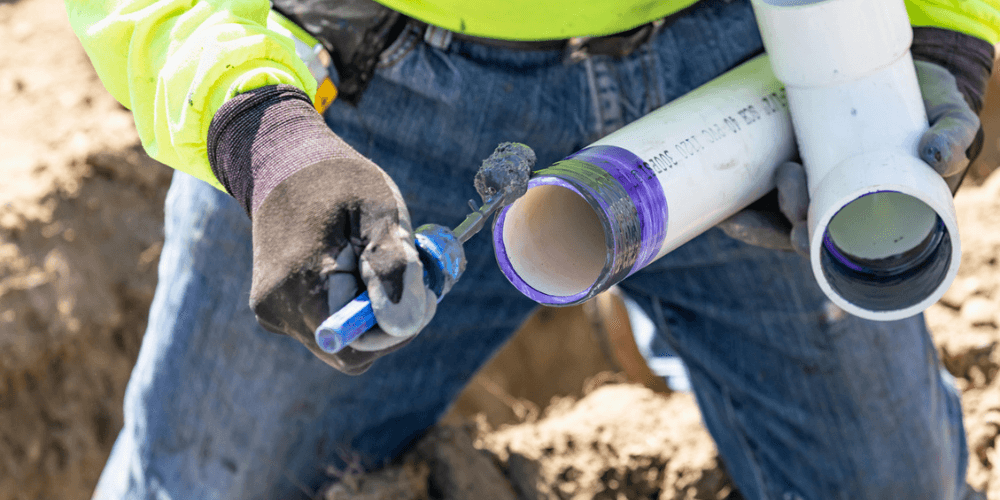
Understanding pipe Installation
Alabama’s professional pipe installation involves detailed planning, precise execution, and adherence to safety standards. This process ensures the plumbing system functions efficiently, meets building requirements, and lasts for years.
For various applications, professionals choose materials based on specific requirements; these are the following:
- PVC pipes: For wastewater and venting, resistant to corrosion.
- Copper pipes: For potable water and heating, valued for longevity.
- PEX pipes: For flexible water supply lines, easy installation.
- Galvanized steel pipes: Historically used for water supply, they are now less common due to corrosion concerns.
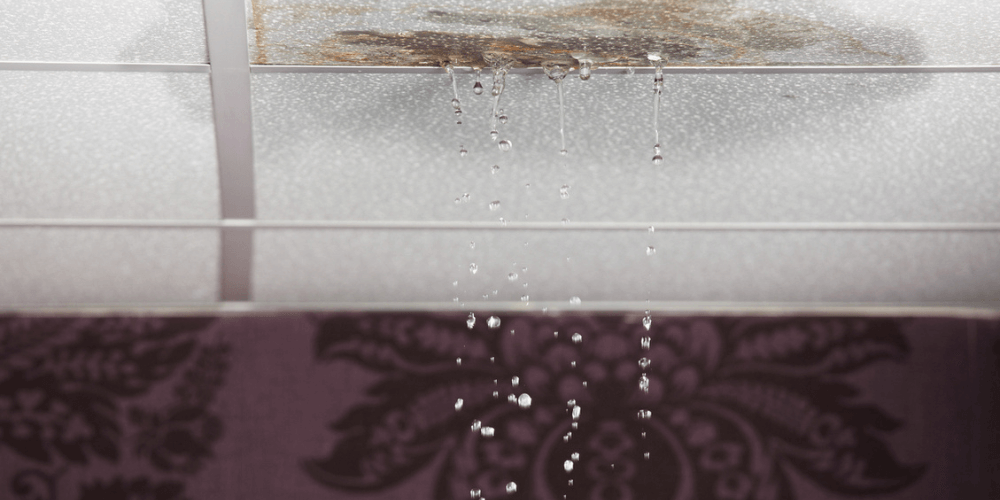
Risks of Improper Pipe Installation
Improperly installed piping can cause severe problems for a building’s structure and the health of its occupants. The following are the potential problems associated with improper pipe installation:
- Leaks: This leads to wasted water and potential flooding.
- Water damage: Damaging walls, floors, and furniture and promoting mold growth.
- Health hazards: Encouraging mold and mildew can cause respiratory problems and allergies.
Substandard pipe installation work can negatively affect property value and insurance rates; these include the following:
- Decreased property value: The risks of future plumbing failures deter potential buyers.
- Increased insurance premiums: Insurers may raise rates due to a higher likelihood of water damage claims.
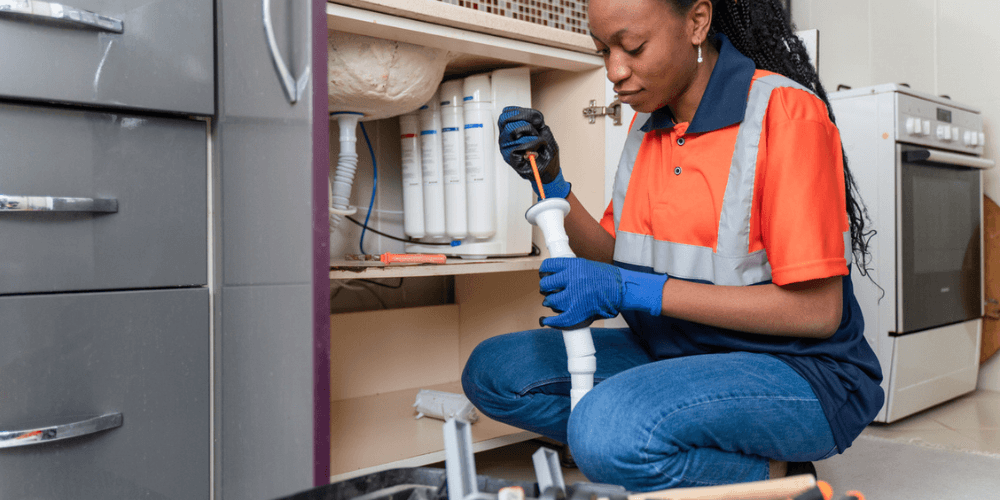
Benefits of a Professional Pipe Installation
Professional pipe installation brings invaluable benefits to the integrity and functionality of plumbing systems. Ensuring the correct completion of the job generates long-term advantages, which encompass the following:
- Longevity and durability: Expert installation employs the best practices and materials, significantly enhancing the system’s resistance to wear and extending its lifespan.
- Efficiency and water conservation: Properly installed pipes prevent leaks and inefficiencies, conserving water and leading to lower utility bills, emphasizing the critical role of precision in installation.
- Compliance and safety: Professional installers adhere to the latest building codes and standards, ensuring installations are safe and compliant, thus protecting the health and safety of building occupants.
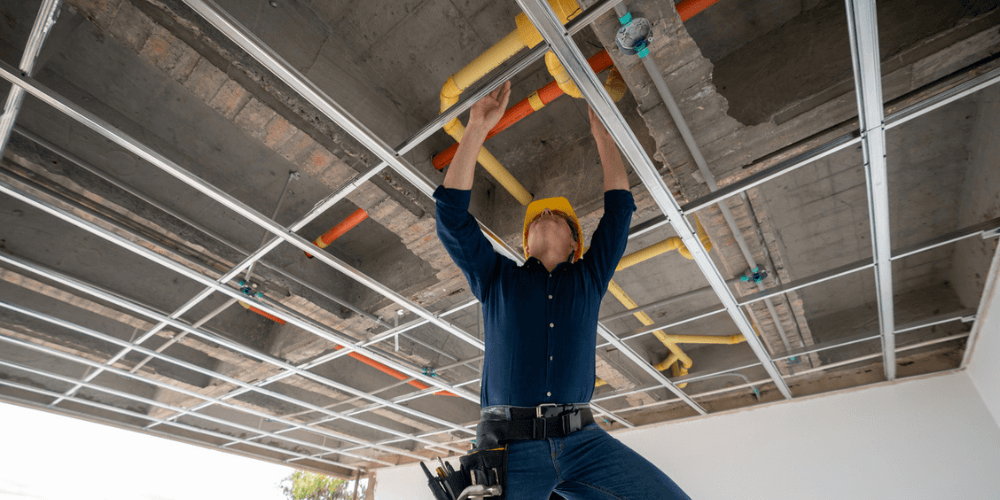
What to Look for in a Professional Pipe Installer
When hiring a professional pipe installer, it is crucial to consider their qualifications and certifications. Reputable plumbers possess relevant certifications, such as:
- Valid licenses from local authorities.
- They possess relevant certifications, such as those from the Plumbing-Heating-Cooling Contractors Association (PHCC) or the American Society of Plumbing Engineers (ASPE).
These certifications demonstrate their adherence to specific standards and their possession of the requisite knowledge and skills to manage a range of installation projects effectively.
Consider the following when selecting a professional pipe installer:
- Experience: Provides a plumber with the ability to handle various challenges, ensuring adept problem-solving and successful project outcomes.
- Specialized training: Enhances their expertise with the latest pipe installation techniques and industry advancements.
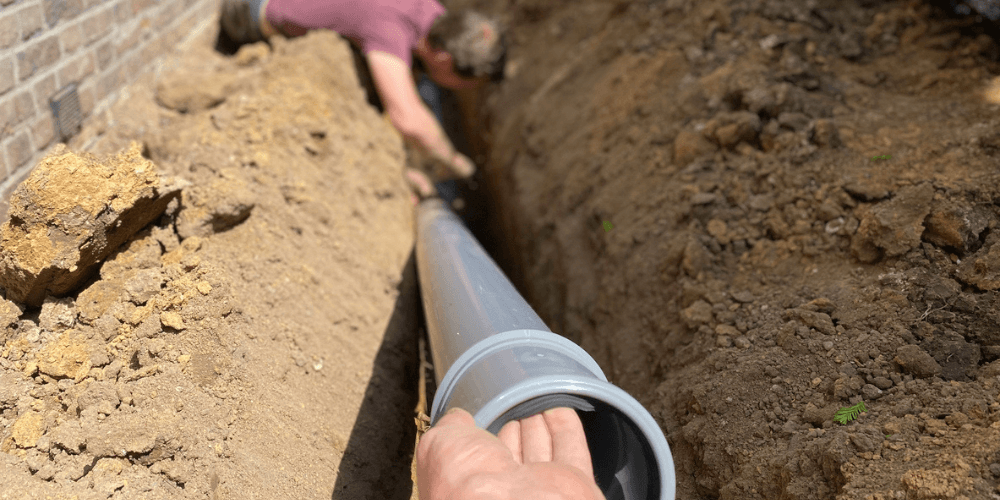
The Process of Professional Pipe Installation
Professional pipe installation follows a systematic process, ensuring proper planning, execution, and inspection. Here is a step-by-step breakdown:
- Planning: The plumber assesses the project requirements, including considerations such as pipe sizing, material selection, and available space. Additionally, they create a detailed plan, identifying the pipes’ routes and connections.
- Material selection: The plumber chooses the following based on the project’s needs:
- Appropriate pipes and fittings
- Water pressure considerations
- Chemical resistance
- Compatibility with existing plumbing components
- Preparing the site: The plumber prepares the site by clearing obstacles, ensuring proper access, and preparing surfaces for pipe installation.
- Installation: The pipes and fittings are carefully and precisely installed according to the planned layout. The plumber ensures the following:
- Secure connections
- Proper alignment
- Appropriate support to prevent leaks and damage
- Testing and inspection: Following the installation, the plumber performs leak tests, verifies proper functionality, and conducts a comprehensive inspection to ensure full compliance with codes and regulatory requirements.
- Final inspection: The local building authority or authorized inspection agency conducts a final inspection to verify that the installation meets all requirements and issues the necessary permits, ensuring the installation’s safety and compliance.
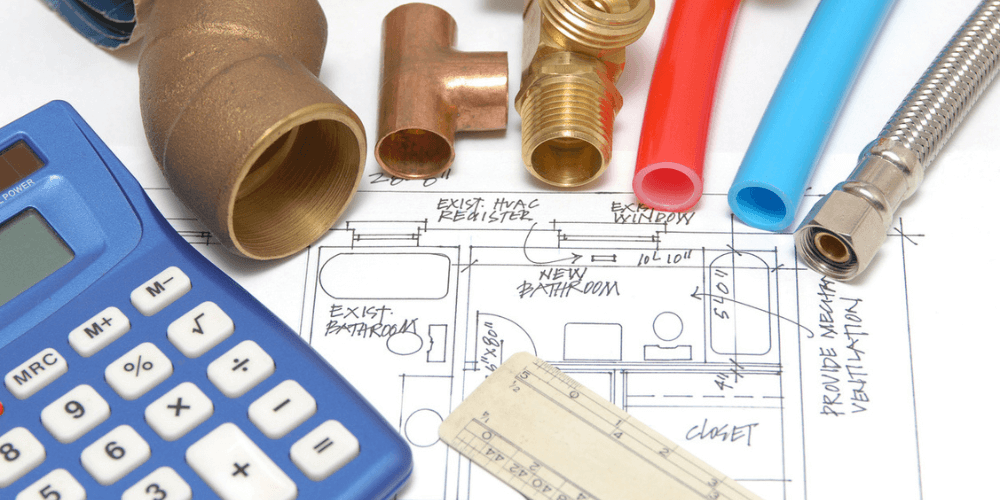
Cost Considerations and Long-Term Savings
Analyzing the initial costs versus the long-term savings and benefits of hiring a professional for pipe installation is essential. In the long run, professional installation can save money by minimizing the risk of future repairs or replacements and ensuring efficient and durable pipe systems.
Budgeting for professional pipe installation without compromising on quality is crucial. Here are some tips to consider:
- Compare quotes: Obtain multiple estimates to find the best balance between cost and quality.
- Prioritize experience: Opt for professionals with a solid history of success, despite potentially higher fees, as it can lead to savings over time.
- Consider material costs: Opt for the best materials within your budget, as higher-quality materials can extend the lifespan of your plumbing system.
- Plan for contingencies: Allocate a portion of the budget for unforeseen circumstances or additional work that may arise during installation.

How to Prepare for a Professional Pipe Installation
When preparing for a professional pipe installation, homeowners and building managers can follow specific guidelines to ensure a smooth process. Here’s how to prepare:
- Clear the work area: Remove any items obstructing access to the installation site to facilitate the plumber’s work.
- Provide documentation: Provide any relevant documentation on existing plumbing systems, previous repairs, or renovations that may impact the installation process.
- Communicate your requirements: Discuss any concerns or constraints with the plumber before the project begins.
- Schedule disruptions: Anticipate temporary disruptions to the water supply during the installation and plan accordingly, such as storing enough water for essential needs.

Don’t Cut Corners: Pro Installations!
In conclusion, professional pipe installation is fundamental to plumbing systems’ integrity, safety, and efficiency. It ensures longevity, minimizes risks, and offers substantial long-term savings.
Furthermore, homeowners and building managers must prioritize quality and professionalism in pipe installation projects. By doing so, they safeguard their property’s plumbing infrastructure and contribute to a more sustainable and cost-effective future.
References:
- Plumbing-Heating-Cooling Contractors National Association. (2024, January 4). PHCC Home – PHCC. Retrieved from https://www.phccweb.org/
- ASPE – American Society of Plumbing Engineers. (2024, January 26). Retrieved from https://www.aspe.org/
